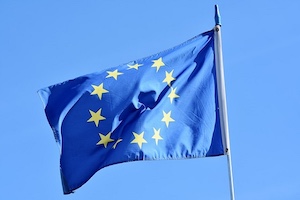The European Union Issues Defense White Paper, Plans NATO "De-Americanization" Over 5-10 Years

Since U.S. President Donald J. Trump took office, he has repeatedly threatened to withdraw from NATO, creating uncertainty and raising concerns among European countries about the possibility of a unilateral U.S. exit. In response, countries such as the UK, France, Germany, and Nordic nations have been planning contingency strategies. They aim to gradually shift defense responsibilities over the next 5 to 10 years, reducing reliance on the U.S. in preparation for the potential impact and disruption if the U.S. were to withdraw from NATO in the future.
According to several European officials familiar with the situation, these countries have organized informal discussions with the goal of developing a plan that would shift the financial and military burden to European nations. They hope to present the plan to the U.S. before the NATO Annual Summit in The Hague this June.
The proposal includes clear commitments from European countries to gradually increase defense budgets and military capabilities. This is aimed at persuading the U.S. to agree to a phased transfer of defense responsibilities, allowing the U.S. to focus more on Asia to address potential conflicts in the Indo-Pacific region.
Despite this, the U.S. will still play a critical role in European defense. With defense spending greater than the combined total of all NATO allies, the U.S. provides not only nuclear deterrence capabilities that ensure European security but also irreplaceable military capabilities. Additionally, the U.S. has about 80,000 troops stationed in Europe. To replace the current level of U.S. military presence, European nations would need to significantly increase their defense budgets over the next 5 to 10 years, even excluding the U.S. nuclear deterrence capacity.
Although the U.S. State Department has repeatedly assured the EU that America still supports NATO and the collective defense clause under Article 5, where NATO members will defend each other if one is attacked, many European nations remain concerned. With Trump's potential re-election and his performance on the Russia-Ukraine war, many worry that the White House might scale back U.S. military presence in Europe and other deployments, or even withdraw from joint NATO missions. In such a case, European countries would face significant security risks.
- 121 reads
Human Rights
Fostering a More Humane World: The 28th Eurasian Economic Summi

Conscience, Hope, and Action: Keys to Global Peace and Sustainability

Ringing FOWPAL’s Peace Bell for the World:Nobel Peace Prize Laureates’ Visions and Actions

Protecting the World’s Cultural Diversity for a Sustainable Future

Puppet Show I International Friendship Day 2020

